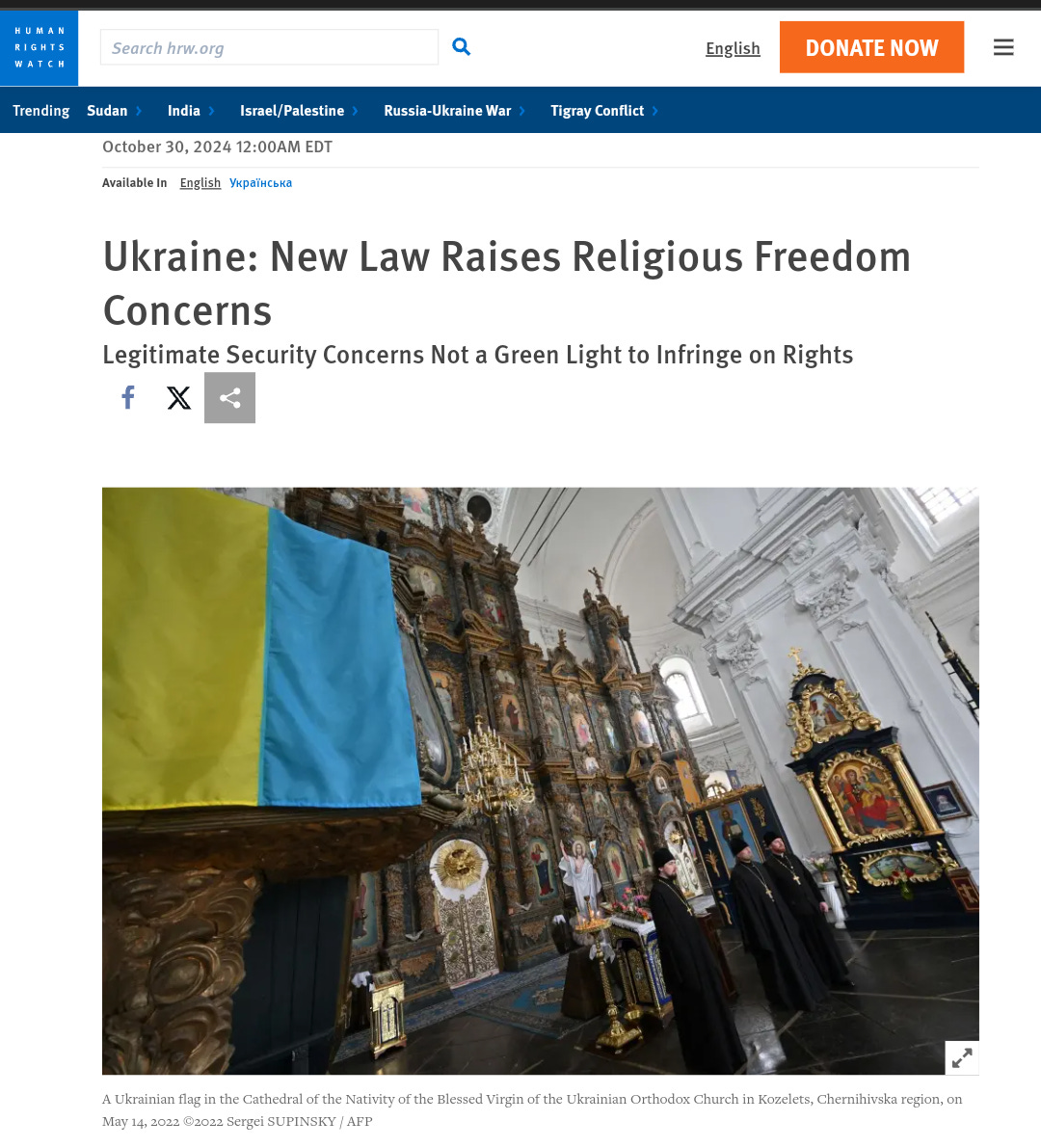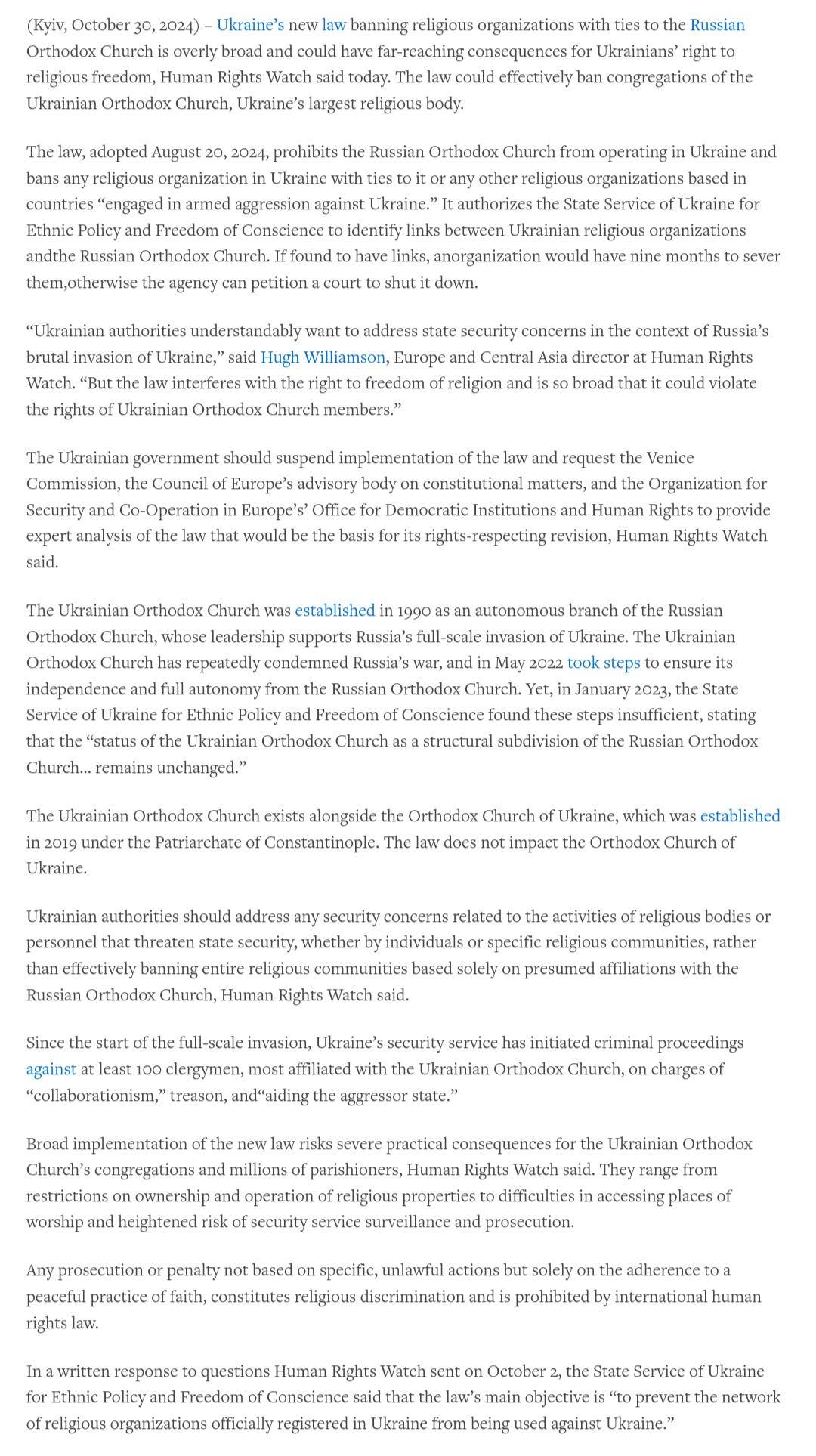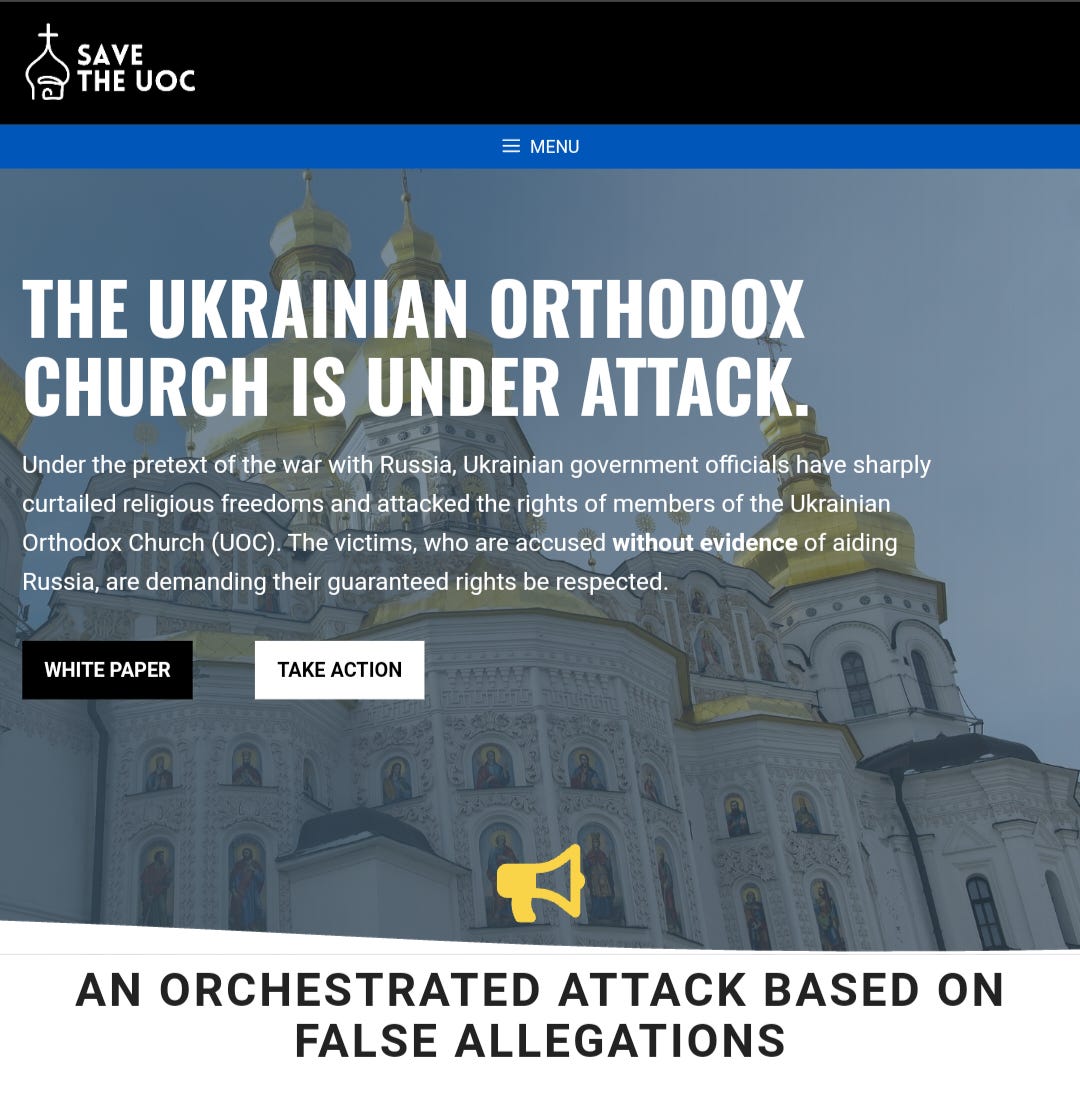Human Rights Watch Criticizes Ukrainian Law for Effectively Banning the Ukrainian Orthodox Church, Which is the Largest Church in the Country
Human Rights Watch published an article condemning a religious law in Ukraine that would effectively ban the canonical Ukrainian Orthodox Church (Met. Onufry). The outlet highlights the importance canonicity within the context of free expression of religion, making is a component of fundamental natural rights.
A few key passages from the article:
Ukraine’s new law banning religious organizations with ties to the Russian Orthodox Church is overly broad and could have far-reaching consequences for Ukrainians’ right to religious freedom, Human Rights Watch said today. The law could effectively ban congregations of the Ukrainian Orthodox Church, Ukraine’s largest religious body.
The Ukrainian government should suspend implementation of the law and request the Venice Commission, the Council of Europe’s advisory body on constitutional matters, and the Organization for Security and Co-Operation in Europe’s’ Office for Democratic Institutions and Human Rights to provide expert analysis of the law that would be the basis for its rights-respecting revision, Human Rights Watch said.
The Ukrainian Orthodox Church exists alongside the Orthodox Church of Ukraine, which was established in 2019 under the Patriarchate of Constantinople. The law does not impact the Orthodox Church of Ukraine.
Since the start of the full-scale invasion, Ukraine’s security service has initiated criminal proceedings against at least 100 clergymen, most affiliated with the Ukrainian Orthodox Church, on charges of “collaborationism,” treason, and“aiding the aggressor state.”
Broad implementation of the new law risks severe practical consequences for the Ukrainian Orthodox Church’s congregations and millions of parishioners, Human Rights Watch said. They range from restrictions on ownership and operation of religious properties to difficulties in accessing places of worship and heightened risk of security service surveillance and prosecution. Any prosecution or penalty not based on specific, unlawful actions but solely on the adherence to a peaceful practice of faith, constitutes religious discrimination and is prohibited by international human rights law.
In a written response to questions Human Rights Watch sent on October 2, the State Service of Ukraine for Ethnic Policy and Freedom of Conscience said that the law’s main objective is “to prevent the network of religious organizations officially registered in Ukraine from being used against Ukraine.”
The law considers any ties, not just institutional and organizational, but also canonical, with the Russian Orthodox Church to be grounds for banning it.
Requiring the Ukrainian Orthodox Church to sever canonical ties may cast doubt on the legitimacy of its adherents’ religious beliefs, which the European Court of Human Rights has identified as a key element of the right to freedom of religion, Human Rights Watch said. An expert affiliated with the Ukrainian Orthodox Church told Human Rights Watch that it should be given sufficient time to explore the complexities of cutting canonical ties through seeking consensus within the orthodox community.
The United Nations Human Rights Monitoring Mission in Ukraine has documented multiple incidents in which groups of people forcefully entered churches belonging to the Ukrainian Orthodox Сhurch, “justifying their actions with decisions from local authorities to register new religious communities of the Orthodox Church of Ukraine at the same address as existing Ukrainian Orthodox Church communities.” In September, Ukraine blocked the website of the outlet DialogTUT, which covered Ukrainian Orthodox Church activities.
Ukraine is obligated under Ukrainian and international law to guarantee religious freedom. The European Convention on Human Rights, to which Ukraine is a party, guarantees in article 9 religious freedom, which includes the right both to hold a particular religious belief and to manifest it, either alone or in community with others and in public or private. Any limitations on this right must be necessary for a stated purpose such as the protection of public safety, public order, or the rights and freedoms of others, be proportionate to that aim, and be supported by sufficient and relevant reasons.
The International Covenant on Civil and Political Rights, to which Ukraine is also a party, similarly guarantees the right to freedom of religion (article 18) and provides that “No one shall be subject to coercion which would impair his freedom to have or to adopt a religion or belief of his choice.”Governments are explicitly prohibited from derogating from, or partially suspending, the right to freedom of religionprotected under the Covenant, even in times of public emergency.
The full article from Human Rights Watch:
Free information, including a detailed white paper, documenting the persecution of the canonical Ukrainian Orthodox Church and the legal remedies The Church is pursuing with the help of attorney Robert Amsterdam via SaveTheUOC.com:










